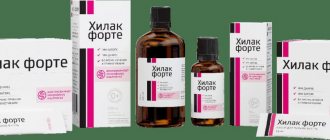Often, when doing strength training, there may be a need or desire to take additional supplements related to sports nutrition. There are still debates about the dangers and benefits of sports nutrition on the website, in newspapers, magazines or television.
It has been proven that anabolic steroids have a negative impact on human health, reflected in side effects, which cannot be said about protein. Therefore, many people have questions about whether it is necessary when playing sports, is it safe, and does it have a negative effect on the body? All these issues will be discussed below. We want to say right away that the protein is absolutely harmless!
How does protein affect potency?
Protein supplements for potency are not dangerous. Essentially, protein is the same piece of meat or a glass of milk, but free of almost all carbohydrates and fats. When taken in accordance with the norm, it cannot harm the male reproductive system in any way. Excess will lead to constipation and failure of a number of biochemical processes. Sometimes it is possible to form stones in the urinary system (this is bad for potency).
As for protein in the form of BCAAs, this is a set of amino acids into which the body breaks down the protein that enters it. Taking something already prepared makes his task easier and speeds up the process of assimilation.
Excessive protein intake may result in a slight decrease in total testosterone levels. This is undesirable for libido. However, protein deficiency will also harm sexual desire: the amount of globulins in the blood that bind testosterone will increase. As a result, the free form of the hormone will decrease and libido will decrease. Both excess and deficiency of protein are bad for potency.
In general, protein supplements help increase physical endurance and improve training results. A man becomes more confident and stronger. All this is only for the benefit of potency.
What is protein made from?
Milk is the most common starting material for the manufacture of protein dietary supplements. Casein protein is made from milk curdled with special enzymes.
Whey protein is a concentrated protein that is isolated from whey. In order to obtain a finished powdered product, milk is curdled, pasteurized, and filtered. The resulting protein is then concentrated and dried.
In addition to these types, soy and egg proteins are also isolated. They are used less often because they are more expensive. Is soy protein good for men? Is this product harmful or not? Scientists have not been able to fully understand this issue, because this type of protein is not completely absorbed by the body.
Egg white is healthy because it contains sulfur, which has a positive effect on the functioning of the entire body. Protein products with mixed composition have also been developed. They combine the best qualities of each type of protein.
Facts and myths about protein
Protein supplements contain pure protein without carbohydrates and fats, making them well absorbed by the body. Egg protein is considered the highest quality, followed by whey protein, the cheapest is soy protein (it also receives the most attacks regarding its detrimental effect on male potency). The fact that the protein is extracted from a natural product (milk, eggs, soy) does not change its composition and properties . Most of the myths about protein supplements are unconfirmed, and the deterioration of erectile function is caused by completely different reasons , but due to the reluctance to understand the topic, some attribute such problems to protein.
Myth No. 1: Protein promotes muscle growth, weakening potency
This misconception is firmly entrenched in the minds of many people (mostly women) due to the incorrect association of protein supplements with anabolic steroids . In the latter case, we are talking about hormones that replace your own testosterone, as a result of which its production decreases or stops. Moreover, while taking steroids with potency, everything is fine in a man; problems begin after they are discontinued. The level of your own hormone during this period is low, and exogenous hormone is no longer supplied. As a result, both libido and potency disappear. Protein does not have a similar effect, but you should not expect such pronounced muscle growth as from steroids.
Myth No. 2: Protein supplements are poorly absorbed and poison the body.
“He is being poisoned by chemicals” - such statements can often be heard addressed to men taking protein supplements. There is nothing chemical in a quality product. Such protein (especially BCAAs) is absorbed even better than regular meat, eggs or fish, so it does not have any toxic effects on the body. The genitourinary system is also not affected.
Whey protein composition from Ultimate Nutrtion (click to enlarge)
Myth #3: Soy protein negatively affects hormonal levels and sperm quality
Soy protein supplements do not have a significant effect on testosterone levels. This is not the highest quality type of protein (it is digested more slowly, the composition of amino acids is depleted), but the presence of a certain amount of phytoestrogens in it does not make it dangerous for hormonal balance.
Several scientific studies have been conducted to test the effect of soy protein on testosterone levels , such as one published in Cancer Epidemiol Biomarkers Prev. April 16, 2007, and J Int Soc Sports Nutr. dated July 23, 2007. In the first case, the testosterone levels of the subjects decreased by 4% after a month of daily intake of 56 g of soy isolate. In the second case, no changes were recorded in men ; only in one of them (with initially elevated testosterone) the level of the hormone dropped slightly.
In later studies involving completely healthy men (without hormonal abnormalities), scientists concluded that in order to noticeably increase estrogen, you need to consume an inappropriately large amount of soy products (more than 0.5 kg) daily . A small proportion of plant protein contained in sports supplements will not cause harm.
However, some men complain of a deterioration in potency when taking soy protein (for example, F-80), but this is most likely not due to the supplement, but to regular overtraining. Heavy strength training increases testosterone levels. It will increase for about an hour after the start of classes, then it will decrease, but after that it will rise to a level slightly higher than the initial one. Many men, in pursuit of quick results, exercise so intensely and often that testosterone does not have time to recover.
If there is a decrease in potency while taking soy protein, then it is better to change it to egg or whey protein.
Boris Tsatsouline will help you figure out how to choose the right protein
Myth No. 4: After refusing to take protein, a man gets fat (muscle “turns” into fat)
The misconception that stopping taking protein supplements leads to an increase in fat volumes (and therefore a decrease in potency) is spread by those who are shocked by the sight of plump former “gym heroes”. Weight gain does not occur due to the refusal of protein, but due to a decrease in the frequency of exercise or its cessation. Often, men, stopping active exercise (and using supplements as unnecessary), continue to eat as before. However, much less energy is spent, metabolism slows down, so what was previously burned during muscle recovery begins to be deposited as fat.
The protein also does not affect the condition of the liver, does not provoke premature or delayed ejaculation, and is not addictive. If potency does decrease while taking supplements, then the reasons may be as follows:
- Overtraining;
- Placebo effect (subconscious expectation of a negative effect from taking protein);
- Health problems;
- Stress.
To dispel doubts, you can always change one type of protein to another.
Is protein harmful to a woman's health?
Not only men consume sports nutrition during sports, but also girls, so the question may arise: is protein harmful to health ?
Male and female bodies have distinctive characteristics, but regardless of gender, during physical activity the body requires more protein consumption.
Harm from sports nutrition when used by women can occur in the following cases:
- with excessive consumption of the daily protein intake against the background of existing liver and kidney diseases,
- use of spoiled product,
- when consuming a counterfeit product purchased from an unverified manufacturer.
Is protein harmful to the body ? This question is often asked by girls who have experienced negative symptoms. Experts recommend that before you start taking protein, you should read the instructions for use and the presence of contraindications. The occurrence of negative reactions is often associated with intolerance to one or another type of protein, therefore, if you are allergic to soy, you should not choose soy protein and, on the contrary, if you are allergic to lactose, you should not choose milk protein. Therefore, you need to select the most suitable type of protein.
Also, many women noted that protein helped normalize hormonal levels, improving mood and well-being during menstruation. It is worth noting that sports nutrition only works in combination with physical activity; without it, you will not be able to get a slim and toned body.
Protein and testosterone
Strength training increases testosterone levels. A protein-carbohydrate cocktail, drunk before exercise, prevents excessive muscle damage and supplies material for their recovery. However, scientists have doubts about the benefits of consuming protein, in terms of its effect on testosterone.
There are a number of studies in which it was found that after training on a protein diet, the amount of androgen decreases (https://www.ncbi.nlm.nih.gov/pubmed/15532008). However, according to the results of other studies, a decrease in testosterone after exercise was recorded when taking not only proteins, but also carbohydrates. If androgen levels rise during fasted exercise and then remain at their peak for another hour, then after eating they will decrease within 30 minutes and remain so for 4-8 hours (Chandler et al., 1994). This effect is especially noticeable in young men.
To explain this fact, 3 versions have been put forward:
- Eating increases muscle protein synthesis during muscle recovery. Testosterone is directly involved in this, since it is it that “serves” a man’s muscle mass and sends signals to the cell nuclei. The release of testosterone is inhibited due to the fact that it is actively used by muscle cells.
- A lot of testosterone is excreted in the bloodstream, since when eating food it is redirected towards the stomach and intestines.
- Protein intake slows down the circulation of testosterone in the testicles, which leads to a decrease in its synthesis.
To maintain normal testosterone levels, athletes are recommended the following percentage ratio of BZHU (proteins/fats/carbohydrates): 15/30/55. For bodybuilders: 30/20/60. For people who go to the gym 2-3 times a week, 1.5 g of protein per 1 kg of weight is enough.
Is protein harmful or not, according to doctors?
Is protein harmful or not - the main questions asked to doctors. In general, experts have nothing against sports nutrition.
Protein is harmful to health only if the daily dosage is exceeded, and its use is also contraindicated. In order to get all the answers to your questions, it is advisable to consult a doctor who can warn and prevent the occurrence of negative consequences.
Also, some mistakenly believe that protein causes enormous harm to men , while confusing protein products with steroids. Protein is found in many foods consumed daily; it is a building material for muscles and bones. Eating a moderate amount of pure protein is not harmful to health, but you still shouldn’t forget about regular protein foods.
Whether protein is harmful to health , reviews from doctors will help you figure it out:
- Andrey Sergeev, nephrologist: for those who decide to work out in the gym with the goal of building muscle mass, protein is an excellent helper, as it replenishes the missing amount of protein and nutrients. In addition, I recommend using it for those who are overweight, but only in combination with physical activity. Rapid weight loss and a lack of protein lead to sagging and deterioration of the skin, but protein will not allow this to happen; on the contrary, it will help improve your appearance. But you can’t eat protein shakes alone; nutrition must be balanced and correct.
- Svetlana Makarova, sports consultant: I have seen rare cases where protein has a negative effect on kidney health if it is abused. Many people do not fully understand how protein works, mistakenly believing that frequent intake of protein shakes allows them to lose weight or build muscle mass without much effort. That’s why there can be negative reviews when an uninformed person takes a large amount of protein, but only gets poor health as a result.
- Tatyana Sergeeva, doctor: protein supplements from trusted manufacturers include protein and nutrients, which is safe for health. Protein is a dried product obtained from whey or milk, which indicates its naturalness. But in order to avoid negative consequences, it is necessary to strictly adhere to the dosage, neglect of which leads to a deterioration in well-being, as well as disruption of kidney function.
Protein is not worth it - is this true?
An athlete's potency may deteriorate, but not because of protein (if he uses supplements within reasonable limits), but due to other factors:
- Lack of carbohydrates, and therefore energy;
- Physical fatigue from training;
- Self-hypnosis (great power).
“It’s not worth it” is more about anabolic steroids, which suppress a man’s own testosterone, and after stopping the course, the body cannot stabilize its production for some time. Low testosterone – low libido. No sexual desire - no arousal and no blood flow to the penis. Here are the reasons for poor erection. Protein has nothing to do with it.
Protein must enter the body within normal limits, then there will be no problems with potency. When consuming protein before and after training, testosterone will drop slightly, but only temporarily. This will not affect potency in any way.
The Protein Supplement Specialists
Everyone agreed that high-quality protein would not cause any harm to a healthy man. On the contrary, an amateur athlete will be able to achieve his dream - he will pump up his muscles and gain strength. However, the drug should not be abused. The main diet should still be natural protein - meat, fish, cottage cheese. Some men use a mixture of cottage cheese with a dietary supplement - a completely acceptable combination.
How protein affects potency - doctors and life itself have already given the answer. Protein has a neutral effect on erectile function. It is only negatively affected by taking steroids.
Side effects and contraindications
The potential for side effects depends largely on the quality of the supplement and your initial health status. Unscrupulous manufacturers may add impurities that are not declared in the composition. Often men exceed the regulated dosage. In such cases, the following side effects occur:
- Acne.
- Kidney and liver dysfunction.
- Allergy.
- Diarrhea.
The last two manifestations may be signs of individual protein intolerance , a lack of enzymes for their breakdown. Diarrhea and abdominal pain while taking protein supplements often indicate dysbiosis. Protein is a breeding ground for pathogens, which, when supplied, begin to actively multiply.
Contraindications to taking protein include pathologies of the kidneys and liver, reduced secretion of gastric juice.
Indications for protein use
Protein is simply necessary for people actively involved in sports. Its use stops catabolic processes in muscles and helps the body recover faster after training. A balanced composition of amino acids increases the body’s protective functions and improves the functioning of the endocrine system. The ideal dietary supplement would be protein for men. Reviews confirm the fact that with protein supplements, muscle mass grows much faster, and the level of fatigue decreases. The enzymes contained in the product have a beneficial effect on the functioning of the gastrointestinal tract.
Reviews of the use of protein by real men
Alexander, 23 years old: “I’ve been taking soy protein for six months now. I specifically donated blood for testosterone - there are no changes. I don’t see the point in overpaying for other types.”
Oleg, 28 years old: “Protein has a great effect on libido and erection. I’ve become more resilient, I like myself, and the potency is appropriate.”
Gennady, 25 years old: “Uneducated people tell nonsense about the negative impact of protein on potency. I was already predicted to have infertility, sagging muscles, and early aging. However, it’s somehow the other way around so far.”
Reviews of protein supplements from subscribers of the YouTube channel “CMT – Scientific Approach”
The opinion of doctors and official medicine
Over the years, there has been debate about the benefits and harms of protein products; many studies, experiments and surveys have been conducted. But statistics undeniably confirm the harmlessness of using such supplements and, if the dose and instructions are properly followed, there is a complete absence of side effects.
The opinion of doctors is unanimous and only you can decide whether protein is harmful or not for your body, because it is an indispensable assistant in the process of building muscles and forming a beautiful, sculpted body. It also helps prevent cancer and tumor formations, reduces cholesterol levels in the blood, and delays the development of osteoporosis.
It is very important to choose the right product, without saving money on this additive and carefully studying the composition. It is better to use protein from well-known manufacturers, reviews of which do not give rise to doubts about the quality of the product and the integrity of the manufacturers.
The composition should not contain additives or components from sports nutrition; this is done to reduce the cost of the product. Choose a quality product and the effect will be noticeable after a month of use. Protein is excellent for muscle recovery, pumping and growth. It also helps overweight people get back to normal faster.
Protein Features
Protein is very important for a developing organism. It is important to remember that only by receiving the required amount of protein per day is full cell growth and normal recovery of the body possible.
Protein is an important element of cellular structure. If you meet the required amount of daily protein dosage, you can:
When entering the human body, protein breaks down into amino acids, which then create protein molecules. By combining amino acids, you can get different proteins that will differ from each other in their composition and characteristics. There are 22 amino acids in food, but there are about 80 in nature.
All proteins are divided into plant and animal. Amino acids can be replaceable (synthesized by the human body) and essential (obtained from food). Proteins of animal origin have greater biological value and are more quickly absorbed by the human body.
Why are proteins dangerous?
Why protein is dangerous for men is one of the main questions for those who decide to start using sports nutrition. A high-quality product, in addition to protein, contains many nutrients that help maintain the body’s condition at the proper level. But still, why is protein dangerous ?
The danger may lie in the following:
- consuming sports nutrition for renal failure and kidney disease can aggravate the condition,
- purchasing a supplement from unknown manufacturers may affect the quality of the product; very often heavy metals are found in such products, which can provoke the development of intoxication in the body,
- If the permissible dosage is exceeded, unpleasant symptoms appear.
Why are proteins harmful for men ? Sports nutrition can provoke the development of an allergic reaction if the components of the mixture are intolerant, so when purchasing protein you should carefully read the composition.
Consumer reviews and expert advice
Is protein harmful to men's health? Reviews from experts say that proteins have a positive effect on the functioning of the body. Moreover, scientists have proven that the protein is 100% harmless.
But it is worth remembering that there are also unscrupulous manufacturers. They can add modified components to the product to increase the shelf life of the product. Sometimes heavy metal salts can be found in the powder. There are known cases where prohormones, drugs similar to steroids, were found in sports nutrition.
Is protein harmful to men's health in this case? This is worth thinking about. In order to reduce the cost of the product, low-quality flavoring additives and dyes are used. The only way to protect yourself is to buy proven products from well-known brands. The supplier must also be reliable. It would also be a good idea to read product reviews. If all products were of high quality and certified, then the question of whether protein is harmful to men’s health would not arise at all.
Negative consequences of use
The main side effect of taking protein shakes is the appearance of unwanted fat deposits. These drinks contain a minimal amount of calories, but their excessive consumption can negatively affect the appearance of the athlete. This is due to the fact that excess energy is stored in fat.
If a person is not an athlete and leads a sedentary and inactive lifestyle, then there is no need to drink sports drinks. Otherwise, there is a risk of extra pounds.
Impact on the male body
Quality protein drinks are completely natural products. The energy that comes from drinking cocktails is completely spent on the formation of muscle mass, without having a negative impact on men's health.
An exception may be low-quality, cheap sports supplements based on steroids.
The effect of sports drinks on the body depends on how optimally the dosage and intensity of training is selected.
A competent approach to this issue will enable a man to notice positive changes in his health and well-being:
- Acceleration of the metabolic process.
- Increased muscle mass.
- Increased endurance.
- Improving muscle definition.
The benefits of protein for gaining muscle mass
The benefits of protein in our body are difficult to overestimate. With the slightest lack of this substance, the body begins to lose muscle fibers, and the process of catabolism begins, that is, the destruction of protein in the body.
Therefore, when playing sports, you should definitely get 2-3 grams of protein with food every day for men, 1-2 grams for women.
Every day, eat foods such as meat, fish, poultry, eggs, cottage cheese, and seafood. This will avoid protein deficiency in the body and will also push muscles to grow.
It is often difficult to get this amount of protein from food and this is where protein supplements come to the rescue. There are a huge number of them.
Therefore, this article will guide you when choosing supplements; there are 3 types of protein:
- Whey
- Dairy (casein)
- Multicomponent
The protein found in the first point is the fastest. It is absorbed almost instantly, and the concentration of amino acids in the blood increases. But at the same time, it drops just as quickly, so it is best to consume such protein immediately after training, as it greatly helps muscles grow.
You may be interested in Review of Protein Shakes for Muscle Growth
Milk protein (or casein protein as it is often called) is designed to prevent catabolism, which is the breakdown of protein in the muscles. This occurs most often at night, so be sure to take it before bed.
It does not have such a dramatic effect as whey protein, so it does not stimulate muscle growth, but simply prevents its destruction.
As a source of such protein, you can use not only supplements, but also regular milk, cottage cheese, and various fermented milk products.
Multi-component protein is a mixture of the two above types, which allows it to simultaneously grow muscles and prevent their destruction. That is, at the same time, the peak concentration of amino acids increases, and at the same time, amino acids continue to be in the blood at an even background for a long time, in contrast to the effect of whey protein.
Carcinogenic effect of protein intake
Breast cancer and protein Analysis of information on the degree of influence of the amount of protein consumed on the development of breast cancer suggests that protein consumption does not contribute to the development of breast cancer.
Ovarian Cancer and Protein Various studies have also found no connection between the development of ovarian cancer and the amount of protein consumed.
Prostate Cancer and Protein Canadian scientists investigated the relationship between prostate cancer and protein intake, but no connection was found.
Laryngeal cancer and protein Researchers from the United States have identified a connection between protein consumption and the likelihood of developing laryngeal cancer - with increasing consumption of animal protein, the risk of developing laryngeal cancer increases, and with consumption of vegetable protein, the risk decreases.
Esophageal and gastric cancer and protein The assessment of the association between protein intake and esophageal and gastric cancer is based on a US case-control study. They found a statistically significant increase in risk with increased intake of total and animal protein and a decrease in risk with increased intake of plant protein.
The use of animal fats, in some people, can aggravate the functioning of the esophagus and the entire gastrointestinal tract, leading to various diseases, including cancer.
Pancreatic cancer and protein When Canadian scientists determined the relationship between protein intake and pancreatic cancer, no statistically significant values were found.
Kidney cancer and protein The assessment of the association between protein intake and kidney cancer risk is based on an analysis of 13 prospective cohort studies. The researchers found no statistically significant associations of total, animal or plant protein with kidney cancer risk.
Colorectal Cancer and Protein When studying the effect of protein intake on colorectal cancer, no statistically significant values were found. There was also no effect of consuming protein exclusively from animal sources.










